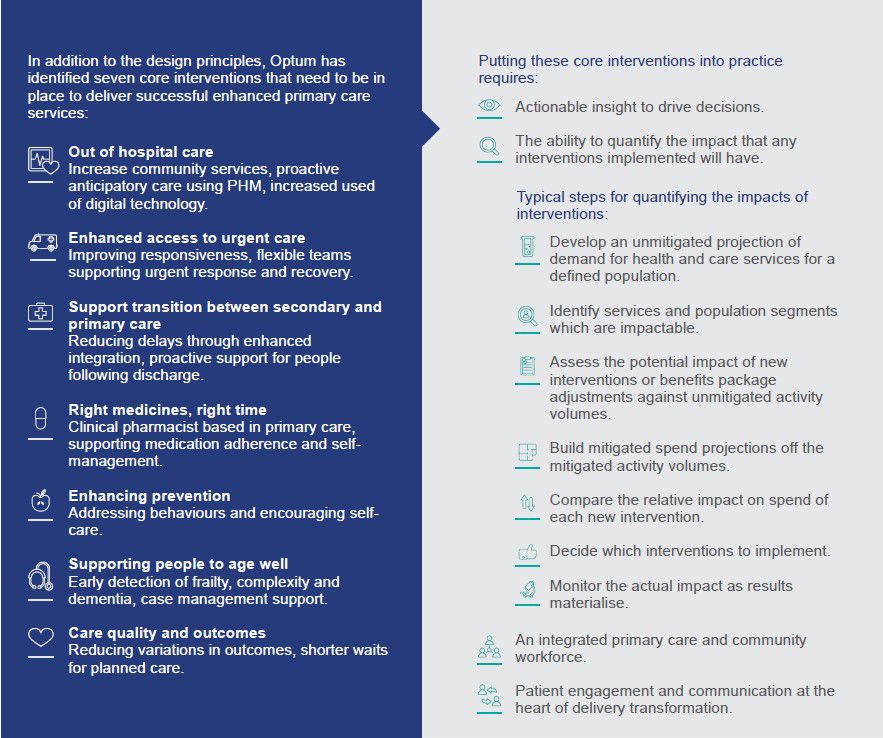Research across many healthcare systems identified an almost universal paradox between the critical strategic role assigned to the primary care system and its relative lack of investment, importance, or influence. In short, leaders in healthcare saw primary care as key to the transformation they wanted to make across the health system but did not allow it to be strong enough to achieve this. A strong and enhanced primary care system where citizens are able to access healthcare with a wide range of services in the community can enhance both the patient experience but also allow for local innovation and design, delivering actionable insights to manage the health of the population.
The development of enhanced primary care is a multi-organisational and interprofessional endeavor that requires a diverse workforce, enthusiastically engaged around a shared vision of transforming the way health and care are delivered, keeping the person at the centre of care delivery. Population Health Management (PHM) can and should be the force that binds collective understanding of the needs and behaviours of the population across organisations starting with the building block of enhanced primary care driving an integrated approach to delivery of pathways articulated by the Model of Care.
This joint research paper between KPMG’s Healthcare team and Optum explores how the principles of Population Health Management principles can be applied to the healthcare system of Saudi Arabia.
The following table demonstrates the potential savings against the model of care pillars, what impact this would have overall and how this compares with the newly introduced model of care in Saudi Arabia.

Samar Nassar

Director Healthcare
KPMG in Saudi Arabia
samarnassar@kpmg.com
Emmeline Roodenburg

Head of Healthcare
KPMG in Saudi Arabia
emmelineroodenburg@kpmg.com



